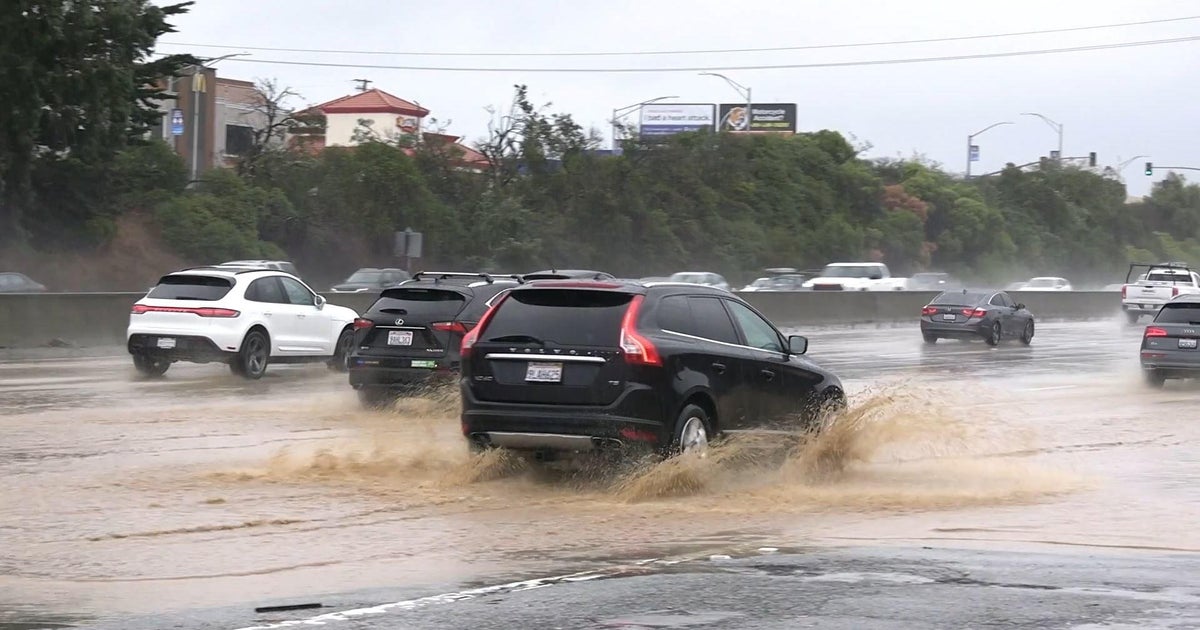SPCA Warns Dog Owners To Stay On Shore After NorCal Drownings
OAKLAND (CBS SF) -- The U.S. Coast Guard, National Park Service and East Bay Society for the Prevention of Cruelty to Animals teamed up to remind people that while dogs almost always survive being swept out to sea, their owners usually don't.
The message at East Bay SPCA headquarters in Oakland Friday came less than a week after Northern California saw another fatality involving a person at the beach with their dog.
In that incident, a woman was walking along a beach at Shelter Cove in Humboldt County with her dog and boyfriend when a powerful wave dragged her into the ocean.
The woman was knocked down by what is known as a "sneaker wave," or a large, powerful wave that catches people off-guard when they're not paying attention, U.S. Coast Guard Petty Officer Pamela Boehland said Friday.
That incident was the fourth fatality since November involving people at Northern California beaches with their dogs, Boehland said.
While winter is always a dangerous time for sneaker waves at California beaches, Coast Guard officials said this year has been especially deadly.
The Saturday after Thanksgiving, three family members perished on a beach near Arcata after a mother and father attempted to save their teenage son who was swept out to sea when he swam out to rescue the family's dog.
And on New Year's Day, 59-year-old Richmond man Charles Quaid drowned after heading into the surf in Bodega Bay to save his wife and their dog, who had been knocked to the ground by a large wave.
Bystanders rescued the woman and the dog but were unable to reach Quaid, who had been pulled under the water by 10- to 12-foot waves.
Coast Guard, SPCA and National Park Service officials said Friday that such tragic scenarios tend to unfold whenever an untrained person attempts an ocean rescue.
"So many people don't make it back, but their dogs survive," East Bay SPCA Director Allison Lindquist said.
That's because dogs are built to float in water, so that they go with the flow of the water until they are rescued, she said.
Humans, on the other hand, tend to get pulled down by the waves and start to panic and exhaust themselves before help can arrive.
Instead, anyone who is pulled out to sea is advised to swim parallel to the waves to return to shore or to tread water, remain calm and yell out to someone on the shore for help.
For those on shore, the best thing to do after either a person or dog is pulled out by ocean waves is to call 911, National Park Services spokeswoman Alexandra Picavet said.
"We love our dogs and will do anything to save them, but we must guard against the instinct to jump into the surf," Lindquist said.
Rather than getting into the water, owners can follow their dog along the shoreline and call to them, which may help orient the dog toward shore, while waiting for help, according to Lindquist.
And since dogs that are swept out to sea tend to be rescued far from their owners, it's essential to equip the animals with a microchip and ID tags.
More importantly, officials said Friday, pet owners should try to prevent their dogs from getting taken out by a wave by keeping an eye on their animals while at the beach.
If the waves seem especially large or if a dog is smaller or older than average, owners should take extra caution to keep them away from the water.
Unfortunately, "rogue waves" or "sneaker waves" often live up to their names by overtaking people and dogs even when beach conditions do not seem to warrant extra caution, Coast Guard officers said.
"Rogue waves do exist, they happen all the time," U.S. Coast Guard Petty Officer Gabe Pulliam said.
"Respect the ocean, never turn your back on it."
(Copyright 2013 by CBS San Francisco and Bay City News Service. All rights reserved. This material may not be published, broadcast, rewritten or redistributed.)



